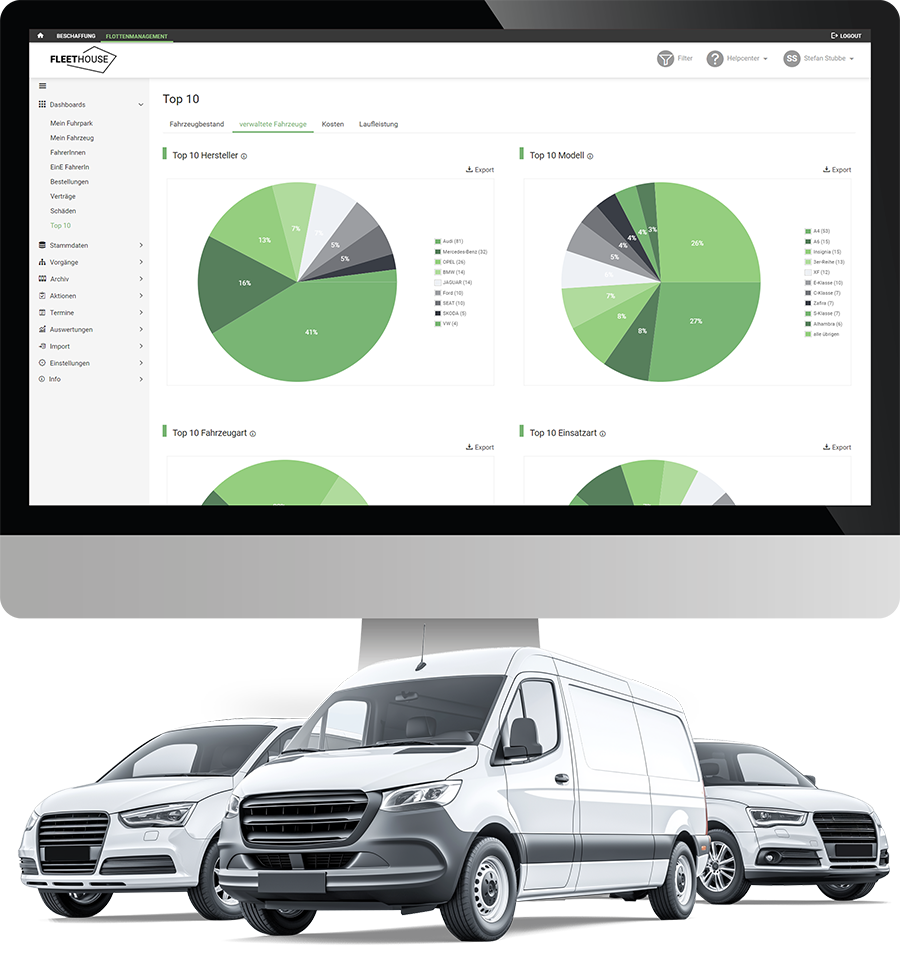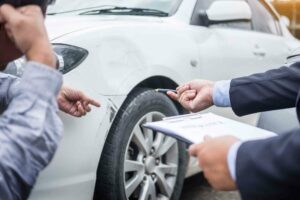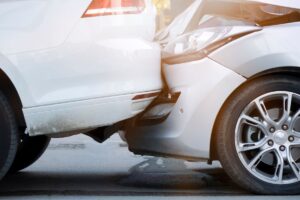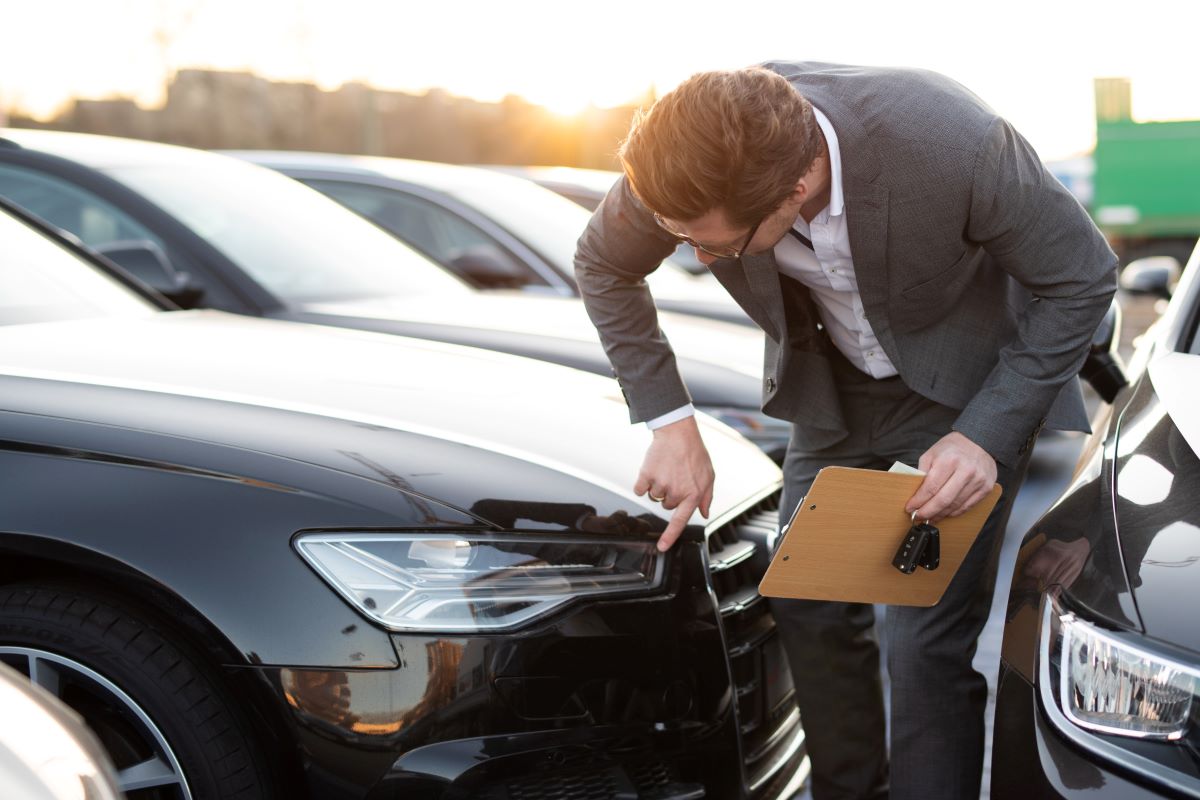Owner liability is an important issue regardless of the size of the vehicle fleet. The owner of a vehicle is liable from the very first vehicle in the fleet. This means that they are not only responsible for the proper maintenance and servicing of the vehicle, but also, for example, for the proper checking of driving licenses and for driver training in accordance with the accident prevention regulations (UVV).
But what exactly does keeper liability mean in the fleet and what do fleet managers need to bear in mind when complying with it? We provide you with an overview of the most important owner liability obligations.
Contents
What does owner liability mean in the vehicle fleet?
“If a person is killed, the body or health of a person is injured or property is damaged during the operation of a motor vehicle, the owner is obliged to compensate the injured party for the resulting damage.”
What are the obligations of owner liability?
The obligations of owner liability in the vehicle fleet include various legal obligations that the vehicle owner must comply with. These are laid down in the Occupational Safety and Health Act (ASchG), the Accident Prevention Regulations (UVV) and the Road Traffic Act (StVG), among others. We explain which ones are particularly important here.
UVV driver training
All employees must be trained in the safe handling of vehicles and how to behave in the event of accidents as part of UVV driver training. The aim is to minimize accidents and health hazards in road traffic and thus increase the safety of employees and other road users. The instruction should take place before every first journey and then at least once a year.
With a driver training as an e-learning course will take the pressure off you in your day-to-day fleet operations, as the content is already fully prepared and can be accessed immediately. Regardless of whether the drivers are in the office, at home or on the road. the instruction can be carried out flexibly.
Driver training according to UVV
All drivers receive flexible training in the safe handling of vehicles and how to behave in the event of accidents via an e-learning course. The results are stored in a verifiable manner.
Driver's License Check
Checking driving licenses is also one of the obligations of owner liability. The law does not specify how often drivers’ licenses should be checked. However, a six-monthly check is recommended.
This involves checking whether each employee is in possession of a valid driving licenseand whether this is sufficient for the respective vehicle class and use in the company. It should also be checked whether there have been any traffic violations or other incidents in the meantime. It is then advisable to check drivers’ licenses more frequently.
Vehicle inspection
Visual inspection
During the visual inspection, the driver ensures that the vehicle is in a roadworthy condition before every journey. If defects are found during the visual inspection, these must be rectified immediately. Regular training and instruction can ensure that drivers have the necessary knowledge to carry out a correct visual inspection. The fleet manager is responsible for rectifying technical defects on the vehicle
Insurance obligation, tax obligation, notification obligation
The insurance obligation is regulated by law in § 1 of the Compulsory Insurance Act (PflVG) and is also part of the owner’s liability. In this context, one of the most important insurances in a vehicle fleet is liability insurance, which provides adequate compensation for third parties in the event of an accident or damage.
The notification obligation involves the immediate reporting of changes in the vehicle fleet to the responsible authorities, such as the vehicle insurance companies or the registration offices. This could be an accident, theft or damage to the vehicle, for example. Changes to the owner data, such as the owner’s address or a change of vehicle owner, must also be reported.
Correct compliance with tax obligations is of great importance for fleet operators in order to avoid possible fines or penalties. In addition to vehicle tax, this also includes sales tax on the purchase or leasing of vehicles and, where applicable, trade tax. It is therefore also one of the obligations of keeper liability.

Who is the vehicle owner? And who is responsible for compliance with the owner's liability?
The owner of the vehicle is responsible for compliance with the owner’s liability in the vehicle fleet. As a rule, this is the management of the respective company, such as the managing director of a GmbH or the management board of an AG. The keeper is responsible for ensuring that the vehicles are properly maintained and serviced and that the drivers have the appropriate qualifications to drive the vehicles. However, the vehicle owner can also transfer the owner’s liability to a specialized person. This is usually the fleet manager, as they are already specialized in other obligations and tasks in the fleet.
It is important to note that the keeper and the vehicle owner, if they are different persons, are clearly distinguished from each other and that the legal obligations, powers of disposal and responsibilities of the keeper in the vehicle fleet nevertheless remain in place.
- Vehicle owner: The vehicle owner is the person who can determine the use of the motor vehicle.
- Vehicle driver: The vehicle driver, i.e. the driver, uses the vehicle and has actual control over the steering wheel.
- Vehicle owner: The vehicle owner is the legal owner of the vehicle.
- Operator obligations: The owner obligations, such as driver instruction or driver’s license checks, are based on the Road Traffic Act, the accident prevention regulations and the Occupational Health and Safety Act.
- Owner responsibility: The management is responsible for compliance with the obligations when providing the vehicles to the relevant personnel.
- Company responsibility: Company responsibility includes, among other things, compliance with the Occupational Health and Safety Act and taking certain measures to ensure the safety of employees.
- Driver liability: In the event of an offense or misconduct, the driver of a vehicle is personally responsible.

Meet the obligations of owner liability safely
Register with Fleethouse and instruct all drivers in your fleet via e-learning – flexibly and digitally.
How is owner liability delegated in the vehicle fleet?
Delegation refers to the transfer of keeper responsibility and duties to a third party. The delegation of keeper liability from the management to the fleet manager can take place in various ways:
- Written contract: One option is to conclude a written contract between the management and the fleet manager. In this agreement, the owner’s liability and its transfer to the fleet management are recorded.
- Verbal agreement: In smaller companies, the delegation of owner liability can also be made verbally. However, it should be noted that it can be more difficult to prove the exact agreements in the event of a dispute.
- Organizational instruction: Another option is to create an organizational instruction that describes the keeper liability and its transfer to the fleet manager. These instructions can also specify the tasks and duties within the scope of keeper responsibility.
- Company agreement: In larger companies, a company agreement can also be agreed between the management and the works council in which the transfer of keeper liability to the fleet manager is regulated.
What happens if the owner's liability is not complied with?
Failure to comply with keeper liability and the associated obligations in the vehicle fleet can have various consequences. On the one hand, there is an increased risk of accidents or material damage. In addition, breaches of owner liability – especially in the event of damage – can also have legal consequences.
- The penalties for failing to provide UVV driver training can be up to 10,000 euros.
- Failure to carry out a driver’s license check can result in a prison sentence of up to one year or a fine.
- If responsibility has been transferred to an unsuitable person, this is a case of supervisory and organizational negligence. In this case, a prison sentence or a fine of up to 1 million euros can be expected.
- In the event of a breach of the owner’s liability and the associated obligations, the insurance cover can be restricted or canceled, which can have considerable financial consequences in the event of a claim.
It is therefore important to carefully observe and comply with owner liability in the vehicle fleet in order to ensure both the safety of employees and the legal protection of the company.
Free guide
In our guide, you can find out more about keeper liability in the vehicle fleet – from the legal basis to the most important obligations.
Support for owner liability in the vehicle fleet through a software solution
Owner liability in the vehicle fleet is a complex issue. Software can be the solution to keeping an eye on everything and fulfilling your obligations safely. With tools such as driver instruction via e-learning or electronic driver’s license checks, it helps you to save time and minimize effort.
The software takes care of the time-consuming organization of appointments, sends automatic notifications and saves all inspections and test results seamlessly. This serves as important proof, particularly in the event of a claim.
In our free guide, we give you tips on how a software solution can make your day-to-day fleet work easier: Getting started with digital fleet management
What are the differences in owner liability for different types of vehicles in the fleet?
The owner’s liability varies depending on the type of vehicle, as different vehicles have different legal requirements, risks and insurance needs.
Trucks (HGVs)
In addition to the Road Traffic Act, trucks are subject to specific regulations, particularly with regard to load securing and driving and rest times. The liability risks are also higher, as trucks can potentially cause greater damage due to their greater mass. In addition to the mandatory motor vehicle liability insurance, special insurance policies such as transport insurance for the load or environmental liability insurance for the transportation of hazardous goods are often required.
Electric vehicles
Electric vehicles are also subject to specific regulations for safe operation and charging. There are particular risks associated with high-voltage batteries, for example, such as fire hazards and special requirements for the charging station. Motor vehicle liability insurance is mandatory, and additional insurance for the battery and charging station is often advisable.
Arrange an online consultation appointment
Arrange your personal consultation appointment now. You can easily select a suitable appointment using our booking tool.
FAQ - Owner liability in the vehicle fleet
How keeper liability is handled differs from country to country. While owner liability is regulated similarly in Germany, Austria and Switzerland, there is no general owner liability in the UK. Instead, the driver of the vehicle is generally liable for damage caused by the vehicle.
Owner liability regulates the responsibility of the vehicle owner for damage caused by their vehicle, regardless of who was driving the vehicle. In contrast, driver liability refers to the responsibility of the driver of a vehicle for damage caused by their driving style or behavior.
There are various insurance policies that are specifically designed to cover owner liability and protect the owner of a vehicle from the financial consequences of an accident or claim. Above all, this includes motor vehicle liability insurance. This is required by law and forms the basic insurance for every vehicle, covering personal injury, property damage and financial loss caused by the operation of the vehicle.
Partial and fully comprehensive insurance are voluntary supplementary insurance policies. Passenger accident insurance offers additional protection for the occupants of the vehicle, including the driver.
The owner’s liability has a direct influence on the no-claims bonus class of the car insurance. If a claim is reported and the insurance company pays for it, the owner’s SF class is downgraded. This usually leads to higher premiums. The downgrading varies depending on the insurer and the amount of damage.
The most important facts about keeper liability in the vehicle fleet
Correct and consistent compliance with owner liability is necessary from the very first vehicle in the fleet.
The transfer of owner responsibility should always be recorded within the legally correct framework and, in the best case, in the form of a written contract.
Non-compliance or irregular performance of the obligations may result in severe consequences under criminal law.
Further Fleet Knowledge
If you liked this article and would like to know more about this topic, we recommend this article.

Fleet insurance for your vehicle fleet: this is what matters
More articles on the topic of keeper liability
Duties in the Fleet: UVV Instruction for Drivers
Electronic driver instruction in accordance with UVV: 5 advantages of an e-learning course
UVV significance in the vehicle fleet: An overview of the accident prevention regulations
Employer driving license check: What you need to consider in the fleet
Accident with company car: Who pays?
Claims management: The 1×1 for fleet managers
Workshop Checklist: How to find the Best Workshop for your Fleet



